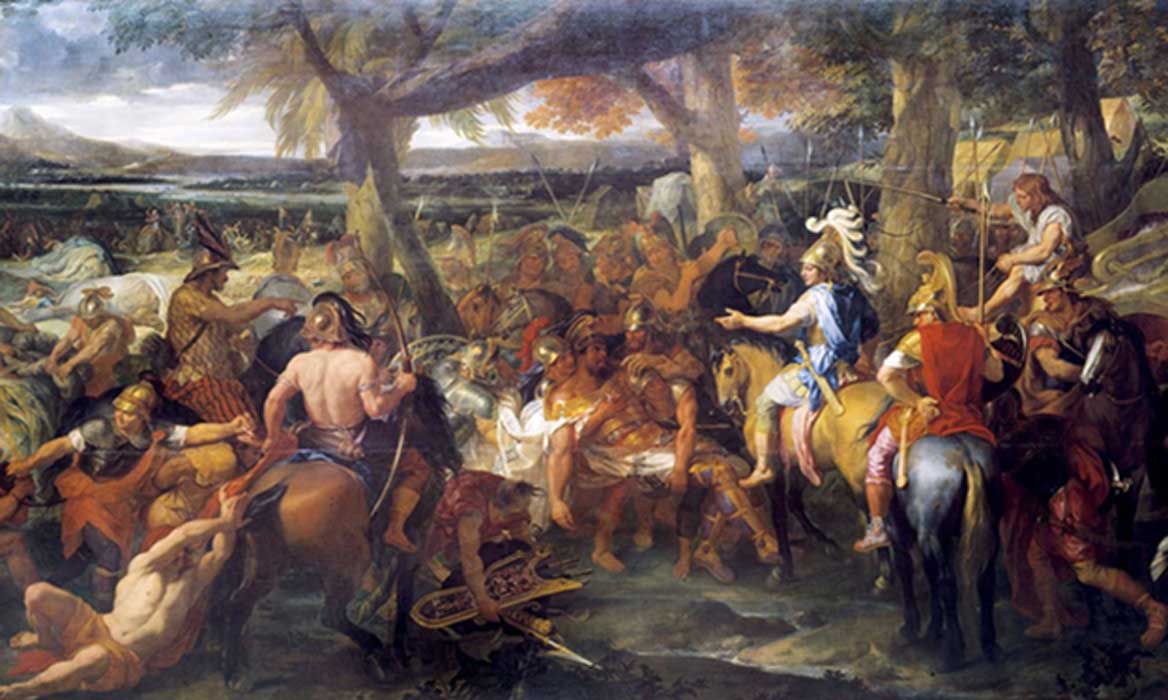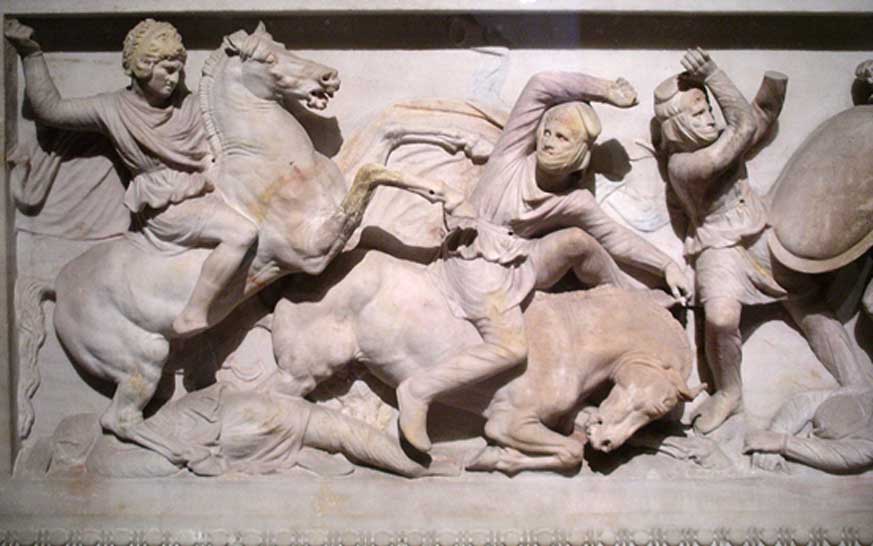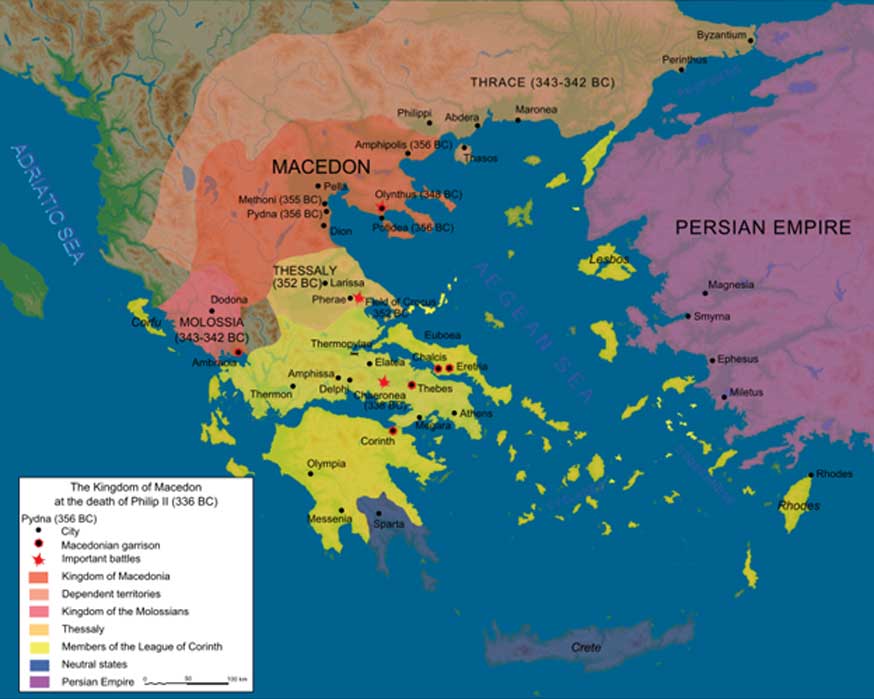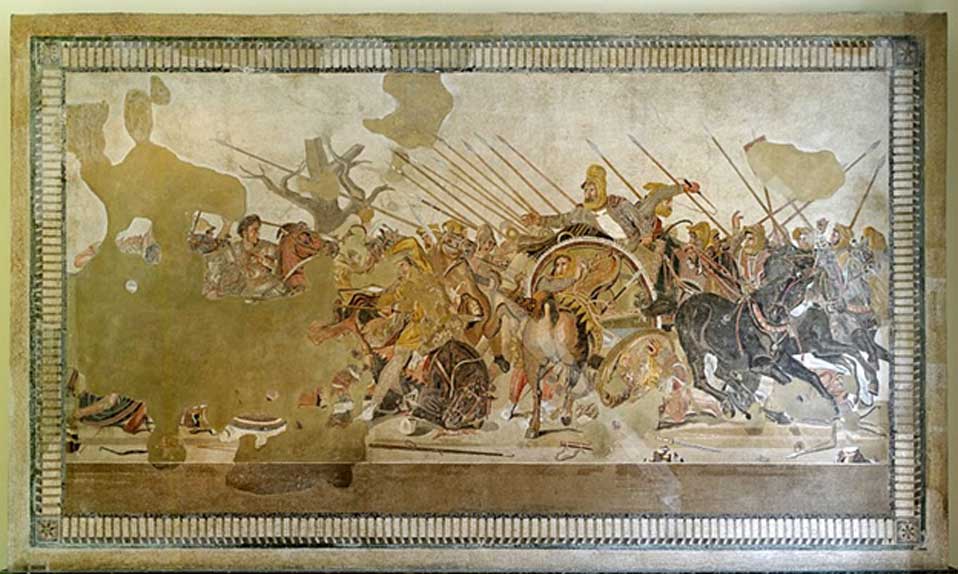
Alexander the Great: The Economics of Upheaval – Part I
Alexander the Great has been termed a maverick whose 13-year meteoric reign was an aberration in the history of the age. He was a mythopoeic conqueror who simultaneously lived by the tenets of the strategically sound and the proportionally outrageous; a tribal leader recalling heroic deeds, and a mortal seeking apotheosis through his progression from Macedonian king, to Greek hegemon, pharaoh of Egypt and the Persian king of kings. Was Alexander the Great an empire builder or an empire destroyer?

Detail from the so-called ‘Alexander Sarcophagus’ in the Istanbul Archaeological Museum (CC BY-SA 3.0)
Since antiquity, views have varied wildly by the historians, philosophers and emperors who either vilified or praised Alexander. What no one can deny is the upheaval he caused, both during his reign and in the years after his death, when the dynasties established by his brilliant generals ruled the Graeco-Persian world.
New Commander-in-Chief Faces Financial Challenge
At the death of his father Philip II in 336 BC, Alexander III of Macedon, became the commander-in-chief of a force of 30,000 infantry and 4,500 strong cavalry, who had been gathered for the invasion of the Persian Empire. However, the decade of war waged by Philip, which saw Macedon expand into the first land empire in Europe, followed by the unrest Alexander had to quell in Greece and the Balkans after his father’s death, meant the Macedonian treasury was depleted before the invasion had even begun.

The Macedonian Empire at the death of Philip II in 336 BC (CC BY-SA 3.0)
To obtain the funding for the expedition Alexander had been forced to borrow heavily from the Macedonian barons and aristocracy. He exempted them from tax to consolidate his position and handed out state lands to secure further funds and loyalty. The funds remaining in the royal coffers at Philip’s death would have covered the wages of the mixed infantry Alexander required to cross into Asia for a few months, discounting the far higher cost of keeping cavalry in the field. As a result, Alexander was soon forced to disband his 160-ship navy, though his continued mistrust of his Greek naval officers in the face of 400 Phoenician ships still in Persian employ, possibly played a part.
Sacker of Cities?
So, the pressure was on for a confrontation that would prize the Persian treasury open. This immediate and pressing need for funds did not foster an environment in which Alexander could practically govern the land he conquered in any stable way, as his new administration brought with it the collapse of the Persian tax revenue system. As Alexander pressed on down the coast of Asia Minor, cities that refused immediate obeisance were ransomed, garrisoned, destroyed and pillaged, or occasionally pardoned on the promise of good behavior. Greek-settled cities that were not members of the League of Corinth were fair game; non-Greek communities - those in Lycia, for example - could expect no terms at all; essentially if their fate lay in the manner in which they treated the Macedonian advance.





